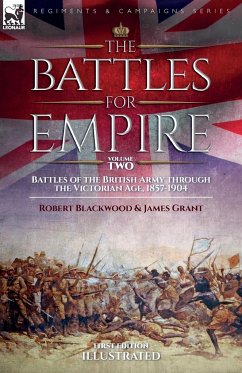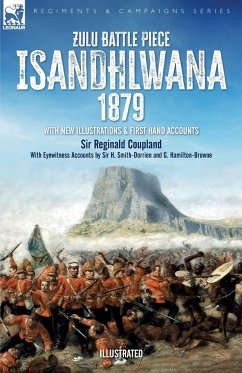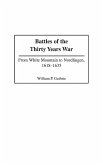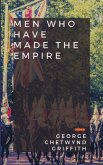The battles that 'coloured the map red' - part 2 The wars fought against revolutionary, consular and imperial France under Napoleon Bonaparte came to an end in June, 1815 at the Battle of Waterloo. Britain did not fight again in western Europe for almost another 100 years. However, in an age which took its name from the long reign of Queen Victoria, conflicts large and small, raged across the globe in often remote and exotic countries against determined indigenous enemies. This Leonaur two volume set focusses more of the most notable of those battles. From inauspicious beginnings the tide turned against the mutineers in India. Lucknow was relieved and there was fierce fighting at Allahbad, Futtehghur, Kotah, Jhansi, Rohan and Bareilly. Whilst the mutiny was being fought on the sub-continent conflict was also raging in China where Canton was taken, though hostilities broke out again in 1860 resulting in the assault on the Taku Forts. Troubles arose in Abyssinia, Ashantee on Africa's Gold Coast and as the 1870's drew to a close in southern Africa where the Zulu Army initially delivered a crushing defeat upon the British at Isandlwana. More defeats and victories followed in the ever-turbulent fastnesses of Afghanistan. The Boers shortly delivered another harsh lesson at Majuba.British and colonial troops went into action in the deserts of Eygpt and the Sudan and in the sweltering jungles of Burma.The Great Boer War was still being fought as Edward VII ascended the throne. As the new century dawned blood was spilled in Somaliland and Tibet. Blackwood and Grant's views of these events benefits from their ability to draw upon sources contemporary to the events described which are sometimes missing from later works. This means that their views are predictably imperial in keeping with his times. Contains images that did not accompany original texts.
Hinweis: Dieser Artikel kann nur an eine deutsche Lieferadresse ausgeliefert werden.
Hinweis: Dieser Artikel kann nur an eine deutsche Lieferadresse ausgeliefert werden.








